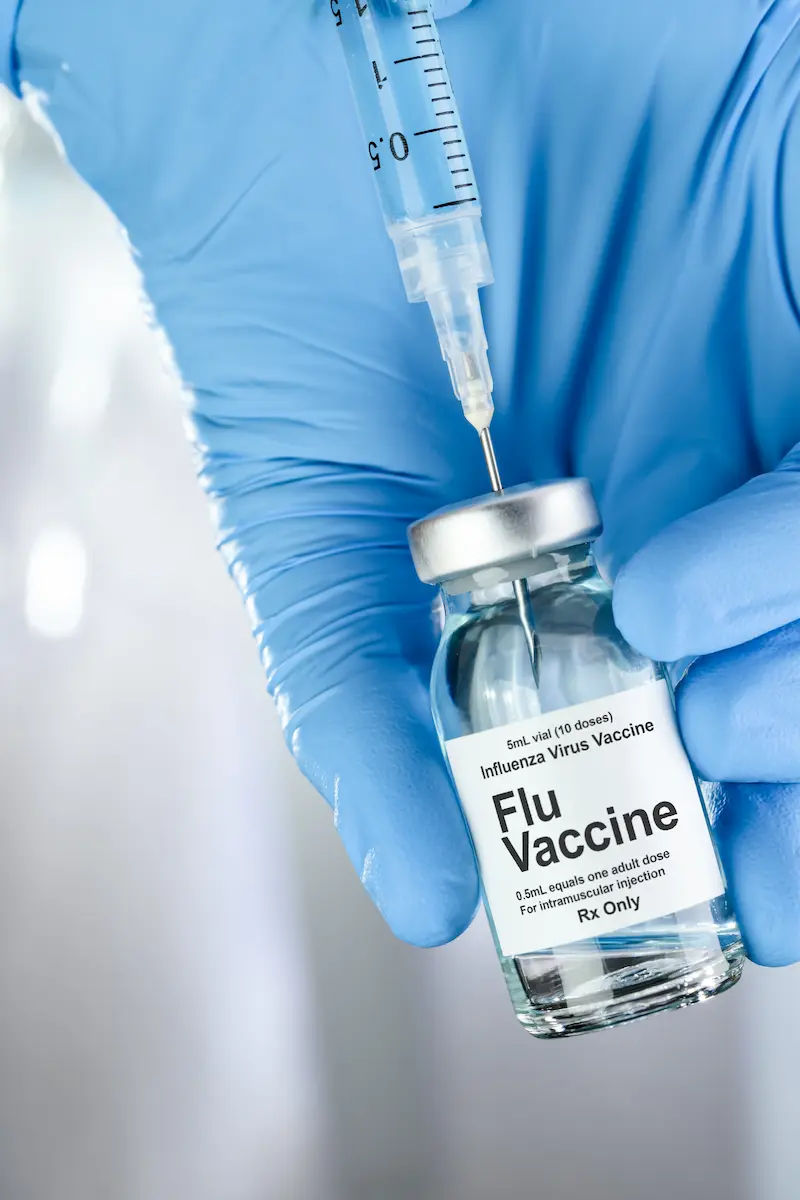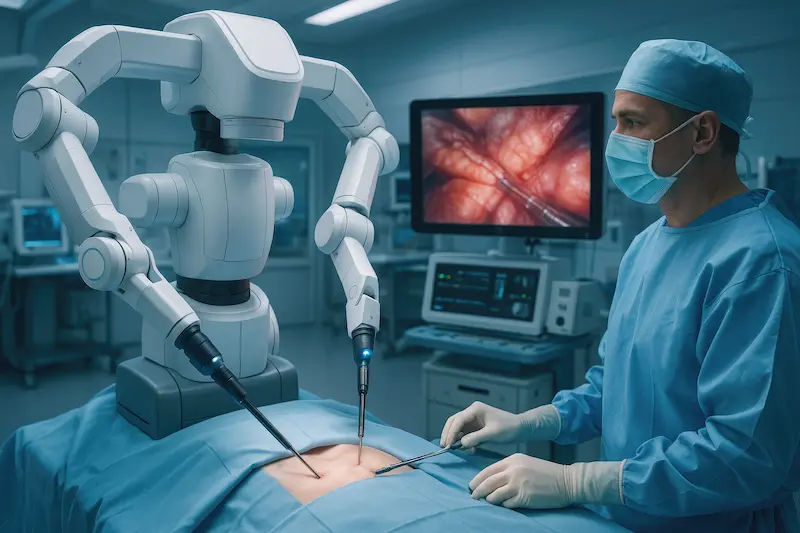Drinking Water in the Morning: Benefits and Best Practices
Learn morning hydration and water benefits: how much to drink, safe tips, FAQs, and myths-backed guidance based on Mayo Clinic, CDC, WHO, and more.

Written by Dr. Md Yusuf Shareef
Reviewed by Dr. D Bhanu Prakash MBBS, AFIH, Advanced certificate in critical care medicine, Fellowship in critical care medicine
Last updated on 13th Jan, 2026

Introduction
You go several hours overnight without fluids while your body continues to lose water through breathing, sweating, and urination. That’s why a simple glass of water after waking can be a refreshing, practical way to start the day. Morning hydration supports normal body functions, helps you feel more alert, and contributes to your total daily fluid intake. In this article, we cover evidence-informed water benefits, what to drink and how much, common myths, and easy habits to make your morning hydration stick.
Morning Hydration: What It Means and Why It Helps?
Morning hydration simply means drinking water soon after you wake up. You’re not “detoxing” or “resetting” your system in a special way; your kidneys and liver do that around the clock, but you are helping your body rehydrate after hours without fluids.
Key reasons it helps:
• You replenish fluids lost overnight from breathing and sweat.
• You support normal circulation, temperature regulation, and digestion.
• You kick off your day with a no-calorie, tooth-friendly beverage choice.
• You set an easy, repeatable habit that contributes to daily hydration goals.
Science-Backed Water Benefits After You Wake Up
These water benefits apply throughout the day, and a morning glass simply gets you started.
Replenishes fluids after overnight losses
• Even in a cool room, we lose water overnight through respiration and perspiration. Drinking water in the morning replaces those losses, so you start the day well-hydrated.
Supports brain function and mood
• Even mild dehydration can affect attention, energy level, and mood. Starting the day with water can help you feel more focused and ready for tasks.
Helps digestion and regularity
• Adequate fluid intake softens stool and supports regular bowel movements. A morning glass can gently prompt the digestive system to get moving.
Supports physical performance
• Hydration helps maintain normal blood volume and temperature regulation, important if you exercise in the morning. Begin your workout already hydrated rather than playing catch-up.
Aids kidney function and overall balance
• Your kidneys regulate fluid and electrolyte balance. Consistent hydration helps them do that job; you don’t need special timing or “flushes,” just steady intake over the day.
How Much Water Should You Drink in the Morning?
• There isn’t a single “right” amount for everyone. Most people do well with about 1 cup (8 ounces/240 mL) of water soon after waking, then continue sipping fluids with breakfast and throughout the morning. Let thirst, comfort, and your schedule guide you.
What matters most is your total daily intake. As a general guide, Mayo Clinic notes that daily fluid needs (from water, other beverages, and food) are roughly:
• About 3.7 liters (15.5 cups) for men
• About 2.7 liters (11.5 cups) for women
Your needs can be higher if you exercise, live in a hot climate, are pregnant or breastfeeding, or are ill with fever, vomiting, or diarrhea. A simple check is urine color: pale yellow usually indicates adequate hydration.Consult a Top General Physician
Best Practices for Safe, Sustainable Morning Hydration
Choose safe water
If your tap water is safe to drink, plain water is the best and easiest choice. If safety is uncertain, follow local guidance (for example, boil water advisories) or use properly treated/filtered water. WHO and CDC provide guidance on drinking-water safety standards and precautions.
Temperature: warm vs. cold
• Choose the temperature you enjoy. Warm water can feel soothing, and cold water can feel refreshing; hydration is what matters. There’s no strong evidence that one temperature provides unique health advantages.
Flavor, fizz, and add-ins
• Plain water is ideal. If you prefer flavor, try a slice of lemon, lime, cucumber, or berries. A splash of 100% fruit juice or unsweetened sparkling water can also make it more appealing without adding much sugar.
• Lemon water is fine for flavor and small amounts of vitamin C, but it is not a detox cure. Frequent exposure to acidic drinks can affect tooth enamel, consider rinsing your mouth with plain water afterward, and avoid brushing immediately after acidic beverages.
Coffee and tea count toward hydration
• Moderate coffee and tea intake contributes to your daily fluids. They can be part of morning hydration. If caffeine makes you jittery or disrupts sleep, choose decaf or herbal options.
Electrolytes: when you do and don’t need them
• For everyday morning routines, plain water is enough. If you’re doing prolonged, vigorous exercise (especially in heat), a beverage with electrolytes can help replace sodium and other minerals lost in sweat. For light or moderate activity, water is typically sufficient.
Pair water with your routine
• Keep a glass or bottle at your bedside or next to your coffee maker.
• Drink a glass while your breakfast cooks or while you skim your calendar.
• If you take morning medications, follow label instructions; many pills work best with a full glass of water, but some must be taken with food or on an empty stomach.
Morning Hydration for Different Lifestyles
If you exercise in the morning
• Aim to arrive at your workout already hydrated. Drink a glass on waking, sip during longer sessions as needed, and rehydrate afterward. Monitor how you feel and check urine color to guide adjustments.
If you work in a dry or air-conditioned space
• Start with a morning glass, then keep a refillable bottle nearby. Dry environments can increase fluid losses from skin and respiration.
If you’ve had kidney stones
• Your clinician may recommend a higher total daily fluid intake to reduce recurrence risk by producing more urine. Morning hydration can be one piece of that plan.
If you’re trying to manage weight
• Choosing water instead of sugar-sweetened beverages reduces calorie intake. Drinking water before meals can help some people feel fuller and eat fewer calories at that meal, useful when combined with healthy eating and activity.
When to Be Cautious?
• Certain health conditions, such as kidney, heart, or liver failure, may require fluid restriction. If you’ve been told to limit fluids, follow your clinician’s guidance.
• Overhydration is uncommon but possible, especially if you drink large amounts very quickly. Spread your intake through the day and use thirst, urine color, and comfort as practical guides.
• If you have swallowing difficulties or are on medications that affect fluid balance, ask your healthcare provider for personalized advice.
A Simple, Real-World Morning Hydration Plan
• Night before: Place a clean glass or bottle by your bed or in the kitchen.
• On waking: Drink about 8 ounces (a small glass). Adjust if you’re not thirsty or prefer to sip.
• With breakfast: Add another glass or choose tea or coffee (limit added sugars).
• Before exercise: If you plan a morning workout, have a few more sips 15–20 minutes beforehand.
• Track gently: Aim for pale yellow urine by mid-morning as a practical sign you’re on track.
• Make it enjoyable: Use a bottle you like, add a slice of fruit, or set a brief reminder if you forget.
Common Myths About Morning Hydration Clarified
• “Water in the morning flushes toxins.” Your kidneys and liver continuously filter wastes; consistent hydration supports them, but there’s nothing uniquely detoxifying about the morning.
• “Warm water melts fat.” No strong evidence supports this. Weight management comes from overall diet patterns, activity, sleep, and other factors.
• “Coffee dehydrates you.” Moderate coffee and tea contribute to hydration for most people. If you’re sensitive to caffeine, adjust accordingly.Consult a Top General Physician
How Often Should You Use the Focus Keywords?
If you’re reading this for SEO context, we’ve naturally woven the terms morning hydration and water benefits throughout the title, headings, and introduction to maintain readability without keyword stuffing.
Consult a Top General Physician

Dr. Rajib Ghose
General Physician/ Internal Medicine Specialist
25 Years • MBBS
East Midnapore
VIVEKANANDA SEBA SADAN, East Midnapore

Dr. Mijanur Rahaman Mondal
General Practitioner
3 Years • MBBS
Kolkata
Dr Utsa Basu Clinic, Kolkata
(25+ Patients)

Dr. Vishal Kumar H
General Physician/ Internal Medicine Specialist
8 Years • MBBS, master class in critical care medicine, Advanced Post Graduate Diploma in Non Invasive Cardiology, certificate course in Cardiovascular Disease & Stroke, Certificate course in Common Mental Disorder
Bengaluru
Apollo Clinic, Basavanagudi, Bengaluru

Dr. Ishita Mandal
General Surgeon
7 Years • MBBS(hons.), MS(general surgery), General and laparoscopic surgeon
Kolkata
VDC Clinic, Kolkata

Dr. Ekta Pandey
General Physician/ Internal Medicine Specialist
5 Years • MBBS
Kolkata
Dr Ekta Pandey Clinic., Kolkata
(125+ Patients)
Consult a Top General Physician

Dr. Rajib Ghose
General Physician/ Internal Medicine Specialist
25 Years • MBBS
East Midnapore
VIVEKANANDA SEBA SADAN, East Midnapore

Dr. Mijanur Rahaman Mondal
General Practitioner
3 Years • MBBS
Kolkata
Dr Utsa Basu Clinic, Kolkata
(25+ Patients)

Dr. Vishal Kumar H
General Physician/ Internal Medicine Specialist
8 Years • MBBS, master class in critical care medicine, Advanced Post Graduate Diploma in Non Invasive Cardiology, certificate course in Cardiovascular Disease & Stroke, Certificate course in Common Mental Disorder
Bengaluru
Apollo Clinic, Basavanagudi, Bengaluru

Dr. Ishita Mandal
General Surgeon
7 Years • MBBS(hons.), MS(general surgery), General and laparoscopic surgeon
Kolkata
VDC Clinic, Kolkata

Dr. Ekta Pandey
General Physician/ Internal Medicine Specialist
5 Years • MBBS
Kolkata
Dr Ekta Pandey Clinic., Kolkata
(125+ Patients)
More articles from General Medical Consultation
Frequently Asked Questions
1) How much should I drink right after waking up?
Most people feel good starting with about 8 ounces (a small glass). Listen to your thirst and comfort. What matters most is total daily fluid intake, which typically ranges around 2.7 liters for women and 3.7 liters for men from all beverages and foods, per Mayo Clinic guidance.
2) Is warm water better than cold water in the morning?
Choose what you enjoy. There’s no strong evidence that warm or cold water provides unique health perks. Hydration itself delivers the benefits.
3) Do coffee and tea count toward morning hydration?
Yes. Moderate coffee and tea contribute to daily fluids. If caffeine bothers you, choose decaf or herbal tea. Aim to limit added sugars.
4) Will drinking water in the morning help me lose weight?
Water is calorie-free, and choosing it over sugary drinks cuts calories. Having water before meals can help some people feel fuller and eat fewer calories. Sustainable weight loss depends on overall eating patterns and activity, not a specific time of day you drink water.
5) Do I need electrolyte drinks in the morning?
Usually not. For everyday routines, plain water is enough. If you’re doing prolonged, intense exercise, especially in hot conditions, an electrolyte drink can help replace sodium and other minerals lost in sweat.




